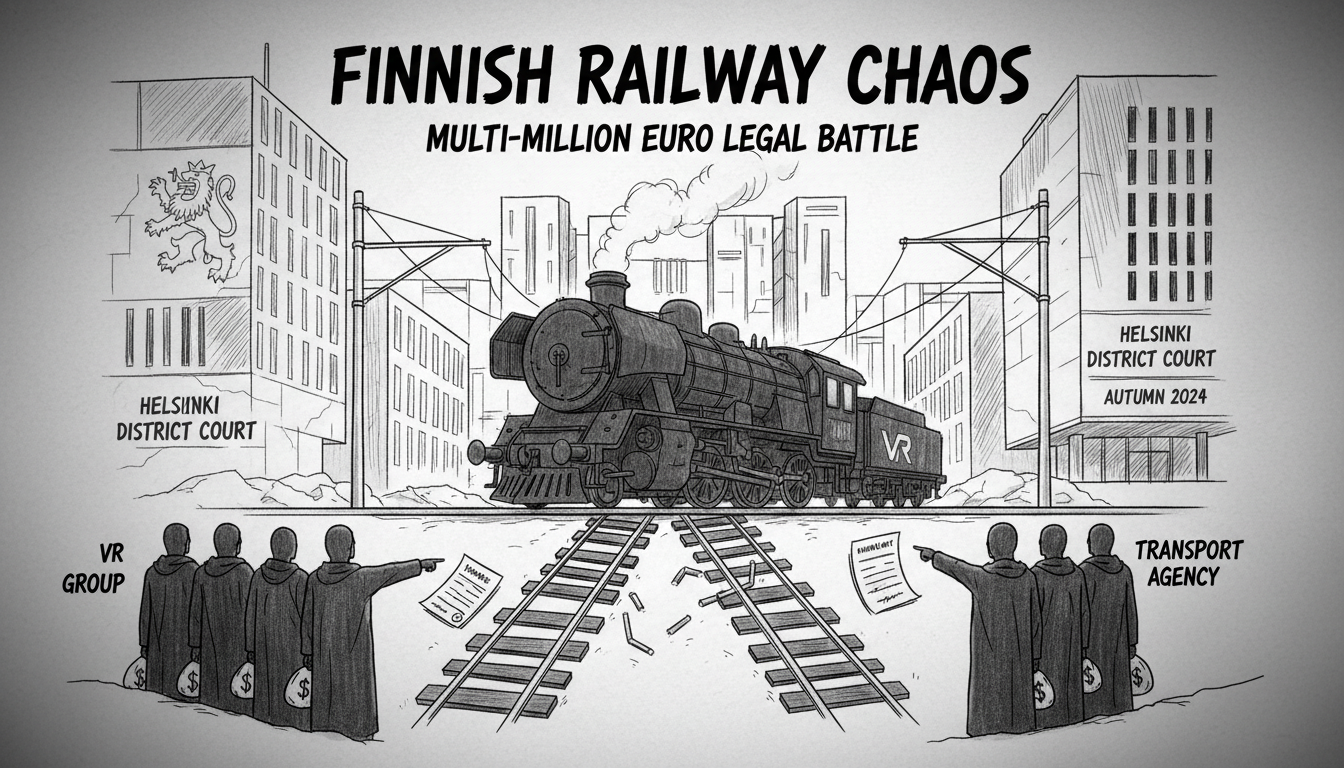A major railway disruption that paralyzed Finland's train network has escalated into a legal confrontation between state-owned VR Group and the Finnish Transport Infrastructure Agency. The conflict centers on responsibility for February's nationwide rail chaos and a 4 million euro compensation demand.
VR Group seeks substantial damages from the transport agency over a freight train incident that halted rail traffic for weeks. The company claims infrastructure failures caused the disruption. Agency officials strongly reject these claims, calling them baseless and exaggerated.
According to the transport agency's account, the crisis began when a freight train broke down between Kouvola and Lahti. The locomotive then moved again with wheels spinning, damaging the tracks. This incident triggered nationwide cancellations and delays affecting both passenger and freight services.
The agency places full responsibility on VR, stating the train operator's driver failed to report potential track damage immediately. Officials note the locomotive's wheel-spin prevention system wasn't activated during the incident. They argue VR acted carelessly by delaying damage reports for four days.
VR maintains the infrastructure agency bears responsibility since the damage occurred on state-maintained tracks. The company claims proper traffic management could have minimized disruption.
This dispute highlights Finland's unique rail system structure where VR operates trains while separate agencies manage infrastructure. The division creates inherent coordination challenges that surface during crises. Similar jurisdictional conflicts have occurred before in Nordic transport systems.
The legal case carries significant financial implications for both state-owned entities. It also raises questions about accountability in Finland's fragmented rail management model. International observers note such structural issues aren't unique to Finland, with other European nations facing similar challenges in separating track ownership from train operations.
The court proceedings beginning this autumn will examine technical reports, communication records, and operational protocols. The outcome could influence how Nordic countries manage infrastructure liability in coming years. For daily commuters and businesses relying on rail transport, the case represents more than just bureaucratic conflict – it's about ensuring reliable service and clear accountability when systems fail.
Rail experts suggest both parties share some responsibility, with communication breakdowns exacerbating the initial technical failure. The case underscores how complex modern transport systems require seamless coordination between multiple entities, particularly during emergency situations.
Finnish passengers continue watching developments closely, as the legal battle's outcome may influence future service reliability and incident response protocols across the Nordic region's transport networks.

